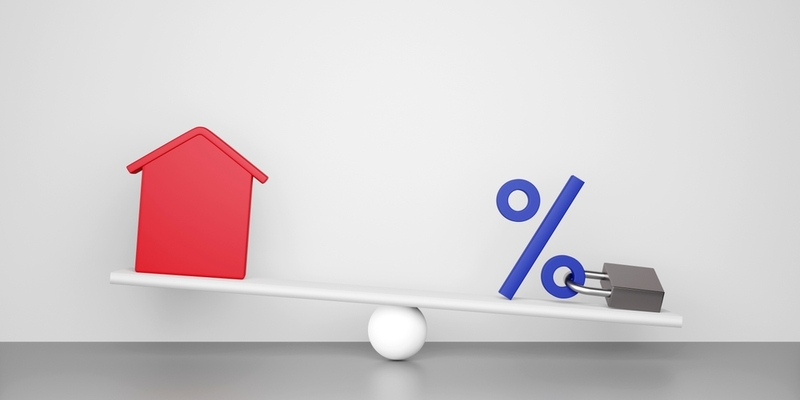
If you are not redirected within 30 seconds, please click here to continue.
Samedi: 10h – 16h HAE

If you are not redirected within 30 seconds, please click here to continue.
If you are not redirected within 30 seconds, please click here to continue.
Bond yields are going up – but what does that mean for you?

Table of Contents
Since the Bank of Canada (BoC) started announcing increases to the target overnight rate a year and a half ago, homeowners holding variable-rate mortgages have had to fork over higher and higher monthly payments; or bitterly watched a larger share of their payments go towards interest even as their principal remains unchanged.
Now, that pain has come for fixed-rate mortgage-holders.
In the past month, anyone who renewed into a fixed-rate mortgage would have noted a huge jump in interest payments from their previous mortgage — as much as a three-percentage point difference, in some cases.
Indeed, Canadian bond yields have soared from the high 3s to a peak of 4.4% between mid-September to October 9. If the economy continues the way it’s going, those increases in bond yields are not only going to create a major dent on the wallets of fixed rate mortgage-holders, but also make it hard for people to qualify or shop around for a fixed-rate mortgage.
But before we get ahead of ourselves, it might be worth drawing the connection between bond yields and mortgages.
What are bond yields?
Bonds are government-backed debt securities that are publicly traded.
The Government of Canada, just like any other government, spends a lot of money to keep the country running. In order to keep up with its spending, it issues bonds to sell to investors. That means, anytime an investor purchases a bond from the Government, they are actually loaning it money.
Now, governments tend to spend a lot of money, particularly during times of financial insecurity, and in so doing, they issue thousands and thousands of bonds. Banks also issue bonds – they lend out money in the form of mortgages, lump that debt into securitized notes, and try to sell them off. The price of the bond is what it’s worth in the moment. If the prices of bonds are low, it’s because there are fewer buyers and more bonds.
The actual sale of the bond isn’t a one-for-one trade based on the face value of what that bond is worth. To make the bond more appealing to sell, investors take different market factors into account to derive a price that matches the value of the bond by the time it matures in five years, adjusting for inflation and interest. That’s the bond yield.
So, when bond prices are low, bond issuers still need to sell the bond at a competitive price, so they’ll set a higher interest rate on those bonds – thereby increasing the bond yield.
What do bond yields have to do with mortgages?
Most people are aware that variable rate mortgages follow the overnight interest rate determined by the Bank of Canada. The target for the overnight rate is an immediate snapshot of how the economy is doing, based on job numbers, the rate of inflation, and GDP.
Crucially for Canadians, it represents how much interest is needed for banks to borrow from the Bank of Canada based on the current rate of inflation; and from there, how much interest is needed for customers to borrow from the banks for the banks to balance their books every night (known as the prime rate).
However, fixed rates are different from variable rates. Variable rates fluctuate based on real-time changes in the market. Instead, when you opt for a fixed-rate mortgage, a bank gives you an interest rate and that’s the rate you pay for the rest of your term-length.
The interest rates of a fixed-rate mortgage are based on how much lenders believe that bonds will be worth in the future (the bond yield), after tacking on a risk premium and a cost to operate (basically, the financial buffer that will allow banks to still remain profitable).
If bond yields are high, that means bond traders believe that interest rates will remain higher for longer. If bond yields start declining, it’s an indication that interest rates may drop.
The prediction: Higher rates for longer
So, say someone purchased a mortgage before the heady peaks and floor-grazing lows of the real estate market during the pandemic. At the beginning of 2019, it was not uncommon for a homebuyer to get a five-year fixed rate as low as 2.7%. At the time, bond yields were at 1.9%.
(Had this homeowner purchased in mid-2020, they would have been able to get a rate of 1.7%, when bond yields were bottoming out at 0.34% — but life, like the economy, can be unpredictable.)

Even as the Bank of Canada began its succession of interest rate hikes, making the lives of variable-rate mortgage holders gradually more difficult, the fixed-rate holder could continue paying 2.7%.
Fast forward to the end of the term: In 2023, bond yields are incrementally increasing, and that fixed-rate holder is renewing next year.
In early October, the five-year Government bond was trading at 4.46%, a high not seen since 2007. While it has slightly tapered off at the time of writing, some experts warn that bond yields could hit 5% in good time, threatening mortgage rates of up to 8% from the 6s and low 7s available today.
Not only does this suggest that the Bank of Canada isn’t going to cut rates anytime soon (bad for all homeowners with mortgages), but it also creates an urgent crisis for the homeowner who took out their five-year-fixed in 2019 and is renewing into a rate that could be double or triple what they were issued before.
What is someone renewing to do?
Bond yields trending upwards poses a few issues for a renewing mortgage-holder: First, they will certainly be paying much more in interest than they were previously. Second, with a higher interest rate, they have less leverage when it comes to shopping around mortgage rates and comparing different lenders to see who’s got the best rate.
Calculate your rate using the RATESDOTCA Mortgage Renewal Calculator.
Comparison shopping is off the table for some people
In an ideal world, where interest rates were affordable, the average homeowner might be able to shop online and requalify with a different lender.
However, under the current stress test introduced by the Office of the Superintendent of Financial Institutions (OSFI), borrowers are subjected to a set of criteria to prove that they can take on the risk, and be able to ride out moderate financial downturns. One such criterion is the ability to take on a mortgage interest rate of 2% higher than the one they’re given, based on their income level and risk profile. Renewals with the same lender don’t call for stress test requalification, but switching lenders does.
But with rates trending upwards, fewer people will be able to pass the mortgage stress test.
“[Bank regulators] are making it harder to shop, and offering the advantage to the incumbent lender who is then tempted to offer a slightly higher rate because they know that nobody can go anywhere if they can’t qualify for a rate at 8.6%,” said Ron Butler, founder of Butler Mortgage.
Related: How the mortgage stress test affects Canadian homebuyers in 2023
Fixed mortgages still a safer way to go
Without the ability to qualify for a better rate elsewhere, borrowers are left with very few options: Extend their amortization period, scrabble together a lump sum to pay down your principal, switch to variable in hopes that rates go down, or try to negotiate down a few basis points with your current lender.
“All you can do is re-amortize,” says Butler. “’Can I go to 30 to reduce my payment?’ That’s the most direct strategy you can use.”
So far, Butler hasn’t recommended switching to variable-rate mortgages yet.
“They could be giving themselves exposure to another 25-basis-point, a quarter-percent or half-a-percent increase, and we don’t think that’s wise,” he says. Instead, he and his team recommend shorter term fixed mortgages.
“The only trouble with using a five-year is that it might be a lower rate than the three-year, so that means that you’re paying 6.09% for the next five years,” he says. “We believe that at some point in the next three years, rates will probably be available in the low 5s, high 4s.”
High rates may create a buyer’s market – but it’s best to wait and see
Another balancing act: When interest rates start soaring, more listings start popping up on the market. Crumbling under the weight of higher payments, real estate investors begin to reevaluate the value of their current assets and start shedding their rental units and secondary homes.
Meanwhile, with fewer people able to qualify for higher-rate mortgages, listings sit on the market longer. According to the Toronto Regional Real Estate Board, September saw 44% more real estate listings than the same time last year, while sales dropped 7.1%.
“This suggests that some buyers may benefit from more negotiating power, at least in the short term,” says Jason Mercer, TRREB’s Chief Market Analyst. “This could help offset the impact of high borrowing costs.”
As house prices inch downwards, people who have been waiting to purchase may find their opportunity to jump into the market soon — provided that they can qualify at a higher interest rate. However, Butler says, it’s too soon to tell. For that reason, his team recommends that people wait a few months to see if house prices drop even further.
“If you hold off for another four or five months, you may get a better house price,” he says. “Even if you’re paying a relatively high interest rate, if you get a two-year fixed, then you can look at better interest rates in two years.”
That’s it – the most cautious approach that a homebuyer can take. Until we can find an economist with a crystal ball, the next best thing is to sit, wait, read the bond yields and hope for the best.
Compare Mortgage Rates
Engaging a mortgage broker before renewing can help you make a better decision. Mortgage brokers are an excellent source of information for deals specific to your area, contract terms, and their services require no out-of-pocket fees if you are well qualified.
Here at RATESDOTCA, we compare rates from the best Canadian mortgage brokers, major banks and dozens of smaller competitors.
Get money-saving tips in your inbox.
Stay on top of personal finance tips from our money experts!








